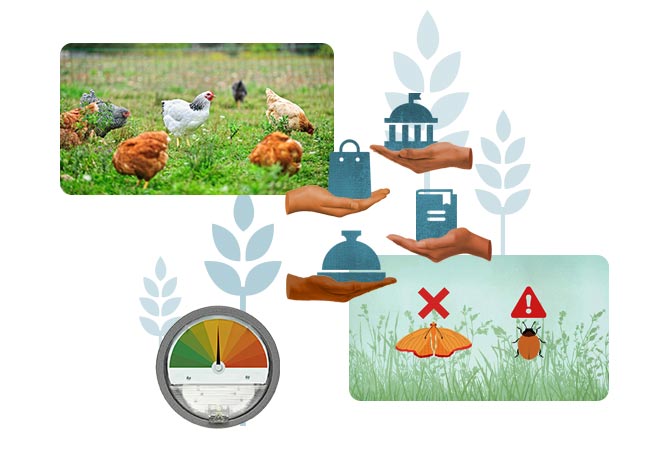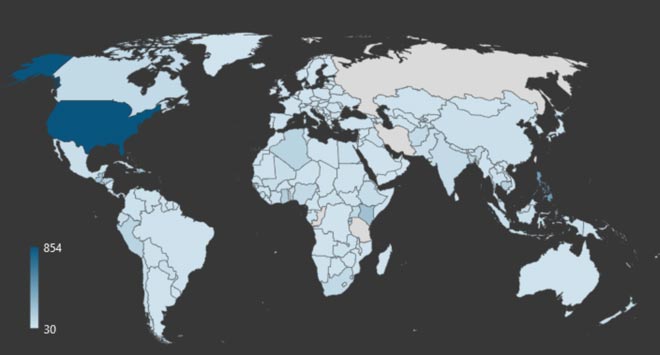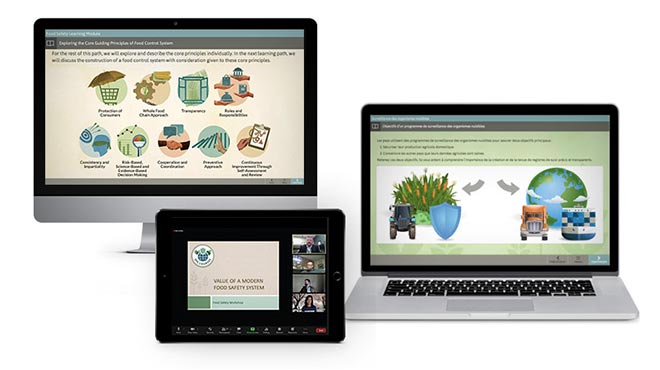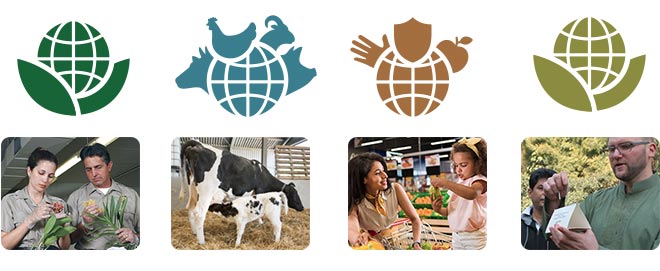Texas A&M AgriLife Research continues a legacy in global food security through partnership with USDA-Foreign Agricultural Services. The global food safety training program for plant and animal products is a research project that aims to enhance both United States government and external audience knowledge of sanitary and phytosanitary standards issues and best practices.

Now in its next phase (2023-2028) Dr. Nicola Ritter (Project Director), Instructional Associate Professor, and Dr. Molly Gonzales (Co-PI), Research Assistant Professor, are working to identify best ways to expand the training program and develop a SPS Good Regulatory Practices (GRP) toolkit. This phase will launch the training program in Ghana, Kenya, Nigeria, Sierra Leone, South Sudan, Tanzania, Timor-Leste, Uganda, and Zambia. As of July 1, 2023, 15,695 learners from 248 countries have accessed the training courses. Figure 1.1 displays a heat map of SPS learners around the world. The training materials are available in English, Spanish, French, Dari, and Russian.

Anyone interested in using the courses may set-up an account at: www.spscourses.com. Over the past 11 years, the training program has partnered with in-country non-governmental agencies to deliver the face-to-face components of this program. The in-person components include a series of hands-on workshops. To date, the in-country component has been utilized in Pakistan, Cambodia, Sierra Leone, Côte d’Ivoire, and Senegal. More information about the training program may be found at: www.tamucet.org/work/sps.

The Center for Educational Technologies expertise is an essential component to this program. This team has worked with USDA subject matter experts to create approximately 250 hours of instructional content, enhanced with multimedia, case studies, self-paced, and in-person activities. The CET partners with researchers to disseminate evidence-based training and outreach activities for research projects. Dr. Ritter stated, “I highly recommend partnering with the Center for Educational Technologies if your research activities have a training or outreach component. By partnering with the CET, I was able to focus on my research, while the CET translated my research into training programs and dissemination to the public.” More information about the Center for Educational Technologies’ services as a Texas A&M Core Facility may be found at: https://vpr.tamu.edu/core_facility/the-center-for-educational-technologies

The global food safety training program was established at the Center for Educational Technologies at Texas A&M University in 2012 by the generous support of the American people provided through the U.S. Agency for International Development, under the terms of Contract No. TA-CR-16-036. This article, and its contents and the opinions expressed herein are the responsibility of Texas A&M AgriLife Research and do not necessarily reflect the views of the U.S. Agency for International Development.
About the CET Core Facility Services:
The Center for Educational Technologies (CET) specializes in developing education programs, trainings and outreach activities which compliment technical experts’ research activities. Many external sponsors request that researchers’ scientific findings be disseminated through education and outreach programs. This is where the CET’s faculty can step in. By partnering with the CET, researchers can focus on their technical expertise, while CET faculty translates your research into training programs and disseminating findings to the general public. The CET offers online hosting services for websites and virtual learning. The CET has a state-of-the-art video production studio on campus, video equipment to film on-location, and equipment to film on-the-go, such as with GoPros. The CET has worked with industry, academic and government research partners on both public and private grants. Explore our current and past collaborations at: tamucet.org/collaboration